Ilitch School student and author Jonathan Roden talks navigating WSU as a justice impacted student
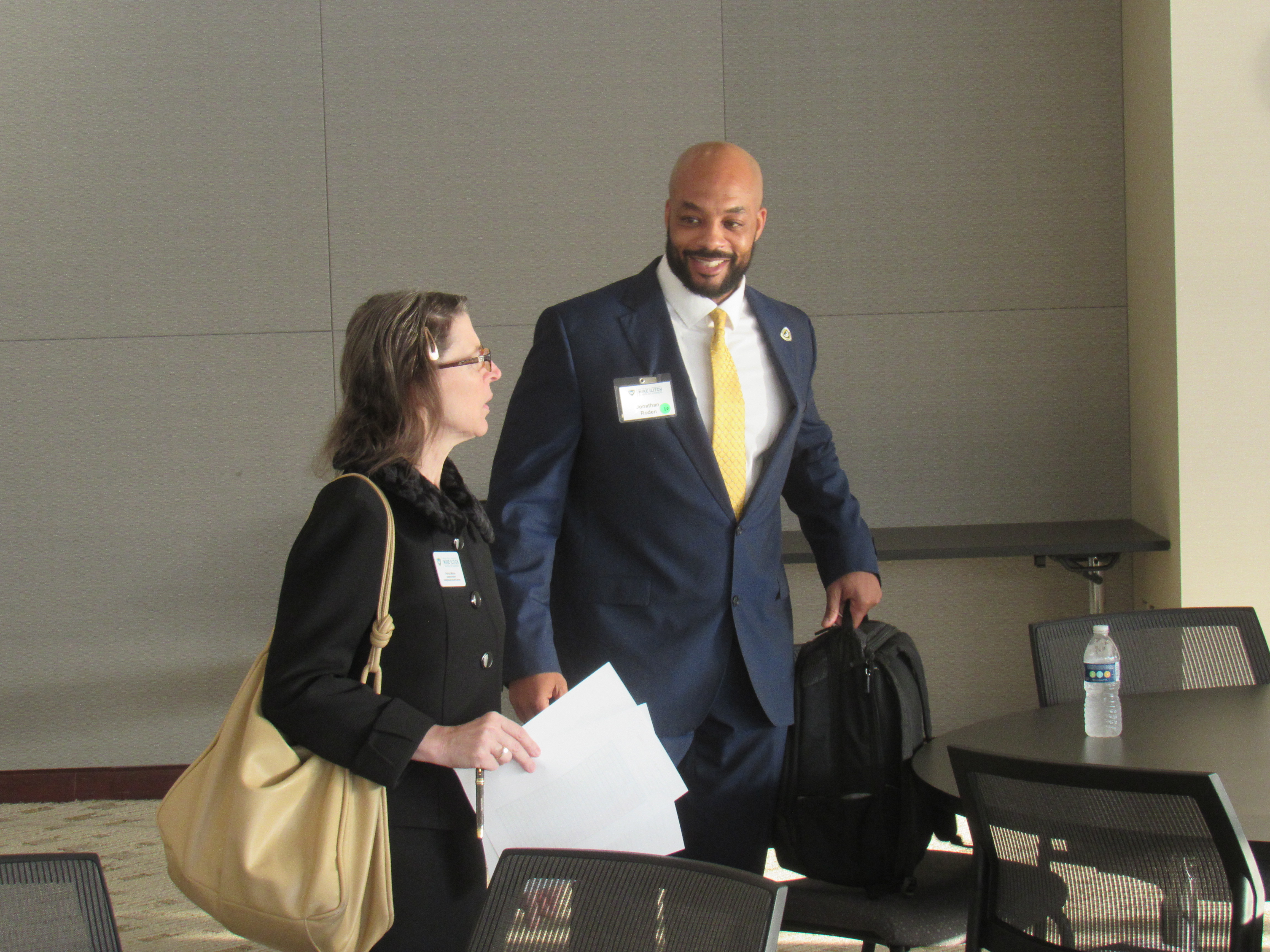
When you talk with Jonathan Roden, junior global supply chain management major at the Ilitch School, he will likely tell you about his unique conception of time. For Roden, T.I.M.E. is an acronym.
"The tangible, immediate, material and environmental," explained Roden. "Tangible means there are tangible things relevant to your goals, immediate means if there are things you can do now, do them, material means things you can touch, and the last part of time is the environment. That's your surroundings, your school, your home, your friends, your family...if I can't make myself better from the things around me, then I'm wasting my environment and I refuse to do that."
Roden developed this concept of time while he was incarcerated for 23 years in the Michigan Department of Corrections. He was sentenced to 25 to 82 years along with his older and younger brother. Roden was able to make the most of his environment to write and publish a book and begin his higher education pathway that would lead him to the Mike Ilitch School of Business.
First Steps
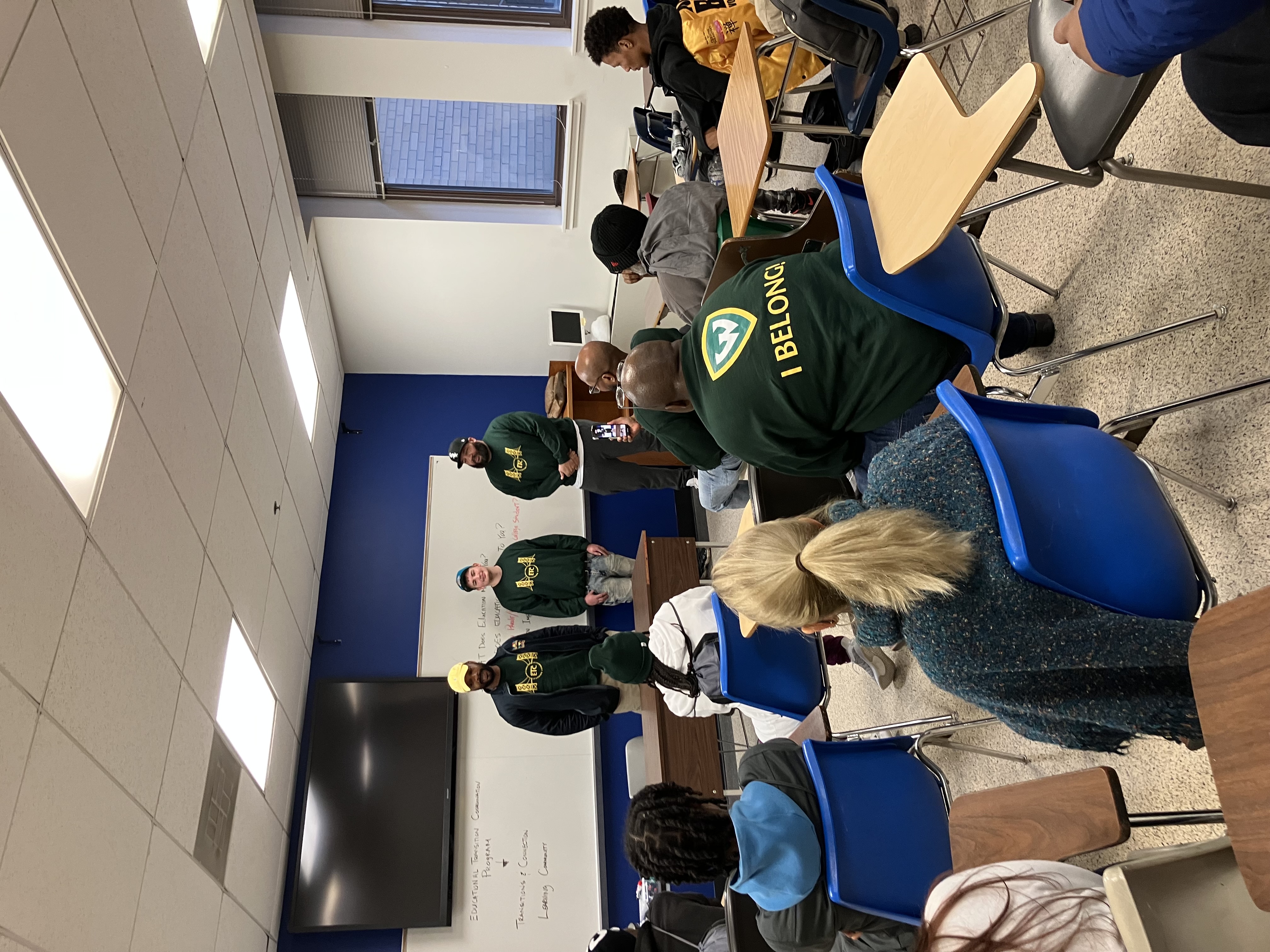
and Connections Learning Community
His journey began in earnest with a phone call to his son after Roden's brother died while still in a Michigan correctional facility.
"When my son was 11, I called home and told him it's time for us to start communicating more. I would basically send him a birthday and Christmas card and try to stay connected in that way, and I had a lot of insecurities about that." said Roden. "He told me Dad, it's easier for me when we don't talk so I don't have to think about what I'm missing. That really broke my heart."
After this conversation, Roden started documenting these feelings, and conversations he wanted to have with his son. Those writings became the foundation of his book, "Building and Maintaining Relationships Despite Incarceration." The book is comprised of five essays, focusing on lessons Roden wanted to impart onto his son.
"One of the conversations I wrote about was when Trayvon Martin was murdered. I felt like it was necessary for me to put everything into context for him, so he didn't have frustration or rage or confusion," explained Roden. "When President Obama was elected, I wrote him and tried to explain the magnitude of that. It became me just communicating with him through letters."
Roden hopes that justice-impacted individuals can read his book and take away that "you're responsible for your development and the development of your relationships," said Roden. "You still have the ability to encourage and inspire your family members, to show them ways to improve themselves and see the good in their situation."
Working on his Freedom
During this time, Roden had embarked on other self-improvement projects too, including building his education using the resources available in his environment.
"I started getting my act together," said Roden. "I went to the law library every day, and worked on my freedom, worked on getting home, worked on building myself."
It was this determination, and an intense interest in the law, that led Roden to file four suits against the Michigan Department of Corrections and receive favorable outcomes each time. This process helped Roden build his familiarity with the law, a subject he is deeply passionate about.
In 2013, he also began participating in the Pathways from Prison to Post-Secondary Education Program run through Jackson College. This program, created by the U.S. Department of Justice, allocated funding to establish opportunities for currently incarcerated people in North Carolina, New Jersey and Michigan to earn associate degrees. The program became so popular that Roden and other participants wrote to Jackson College to urge them to expand the program. By 2015 the Pathways from Prison to Post-Secondary Education Program received enough Pell Grants to allow more people to participate. However, the program still had its limitations.
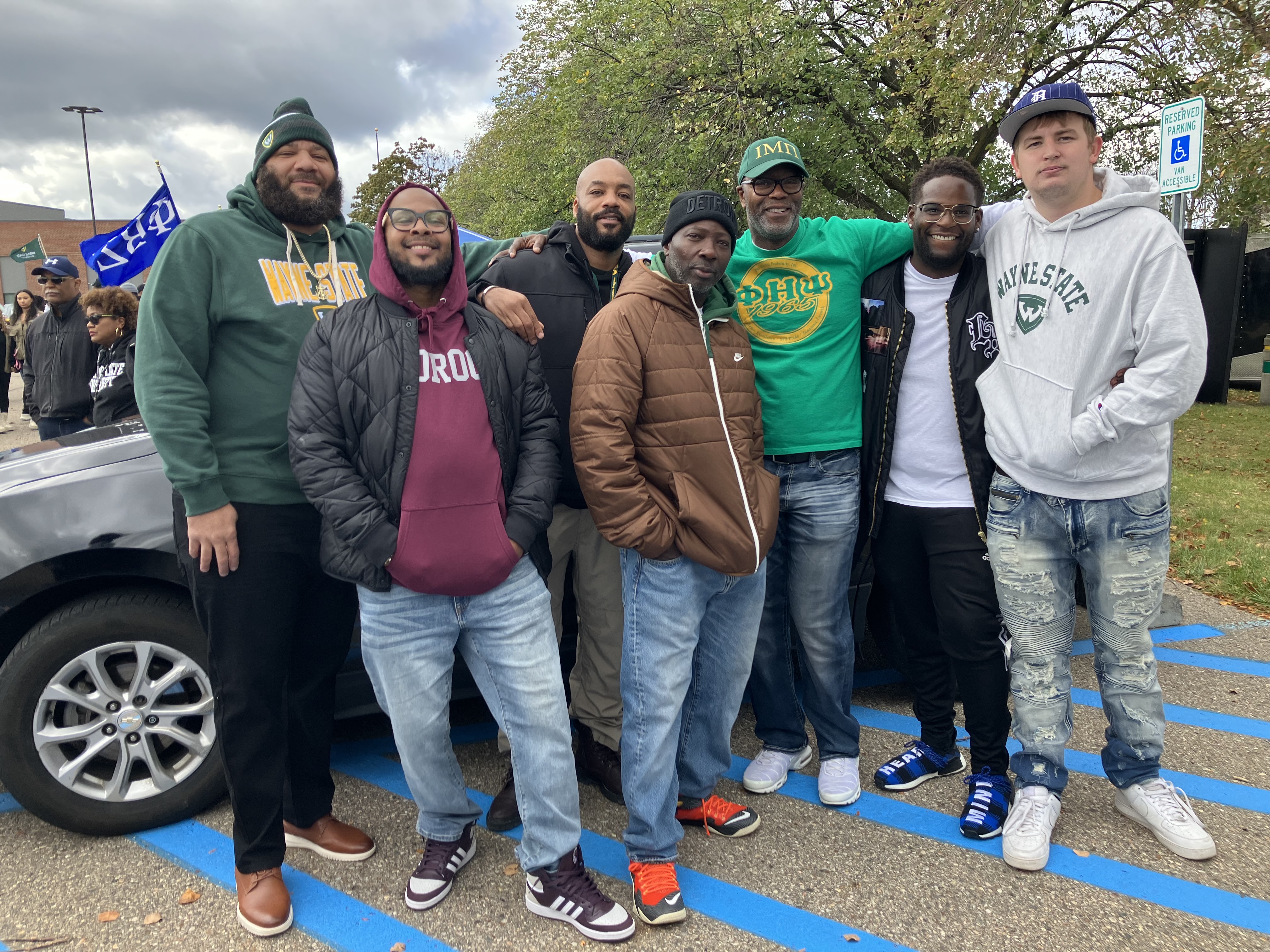
Educational Transitions Connections Program
"I know guys who got two or three associate degrees while we were there, but the problem was that none of us could get a bachelor's degree through Jackson College," explained Roden. "So, you're getting associate degrees because you have such a thirst for knowledge. When Wayne State came and offered four-year degrees, I saw that as the next step."
Educational Transitions Connections Program: Bridging the Gap for Justice-Impacted Individuals
Wayne State came into Roden's life through the Educational Transitions Connections Program (ETC), directed by Terrell Topps, M.S.W. '16. This program is a part of the College of Liberal Arts and Sciences and enjoys support from Dean Stephanie Hartwell. The ETC program reaches out to justice-impacted individuals in south-east Michigan who, like Roden, are involved in education programs in prison with the goal of easing those individual's transition.
"We identify that once released, men and women will need four major things," explained Topps. "We identify that individuals will need housing and employment. We also identified that they will need transportation opportunity, and we identified that there will be mental health concerns and needs."
Along with working to provide individuals with these necessities, Topps and his team also conducts a needs assessment, so they can connect people to the resources they need on an individual level. The program is still in its pilot phase and is actively conducting research on methods and best practices to help justice-impacted students continue their education and avoid recidivism.
The program also helps connect individuals participating in the program with the wraparound services most needed to ease transition and navigation of the higher education space, from academic advising and information about financial aid to mental health services, and other programs such as the Wayne State Food Pantry and Thrift Store. If Wayne State is not identified as the best path for that person, community colleges and vocational schools are considered too.
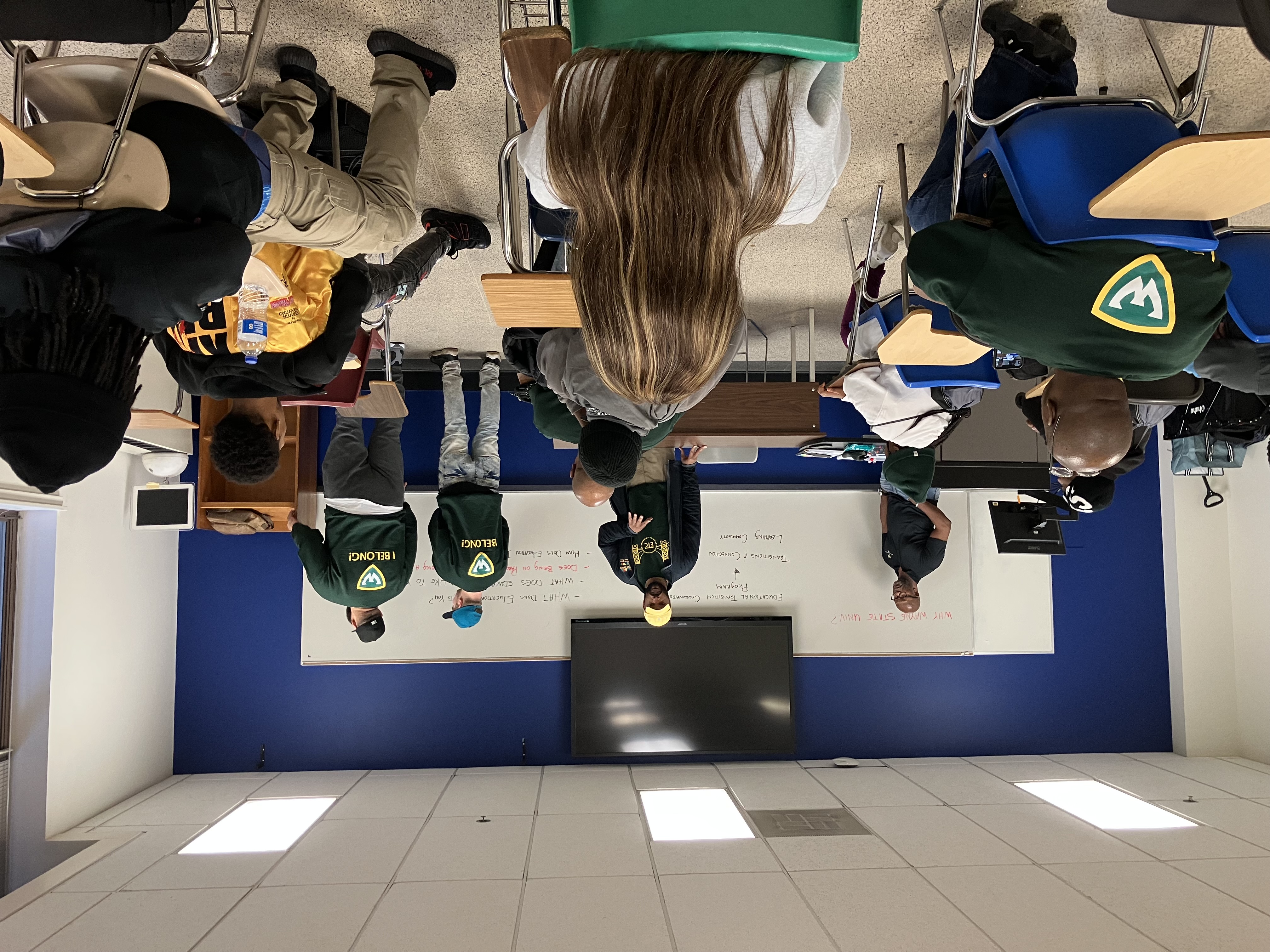
The program is coupled with a Wayne State University first of its kind Transition and Connections Learning Community (TCLC) that provides a safe space on campus for justice-impacted students, and further resources like tutoring and mentorship. Topps, who himself was incarcerated for almost two decades, says that this program would have made a major difference in his life if it was available when he most needed it.
"Men and women that are released from prison need to be able to smoothly transition into higher education pathways and pipelines without falling through what people say are cracks, but what those of us with lived experiences identify as grand canyons," explained Topps. "We can absolutely change the lives of these people with higher education pursuits. Without a doubt the research indicates the higher your education level, the less you recidivate. I am a living testament that it is because of higher education that I have stayed out of prison."
The transition out of prison is fraught with roadblocks, pitfalls and grand canyons, as Roden also attested to.
"I was nine days out of prison when I started at Wayne State," said Roden. "That transition came with so many moving parts. After 23 years in prison, I had to learn society again, I had to learn everything again. I was really overwhelmed my first semester here. Working with the ETC Program has been a positive experience, so has being able to mentor guys who are in my position, coming home and trying to get into the academic world. I'm living my dream right now, I really am."
A Bright Future
Topps hopes that this pilot program can find permanent funding either at Wayne State, or from the Michigan state government, so his work can find a wider reach. Students like Roden and others in the program give Topps hope and serve as further proof of the effectiveness of these initiatives.
"Jonathan is exceptional, and he and the other men that have been in the learning community and that have been accepted to Wayne State University, I have the highest regard for their work ethic, and I wish that I would have had this type of resource when I came home," said Topps. "That's why I am passionate about leading it, because I know how important it is to aid with stabilizing their trajectories for higher education."
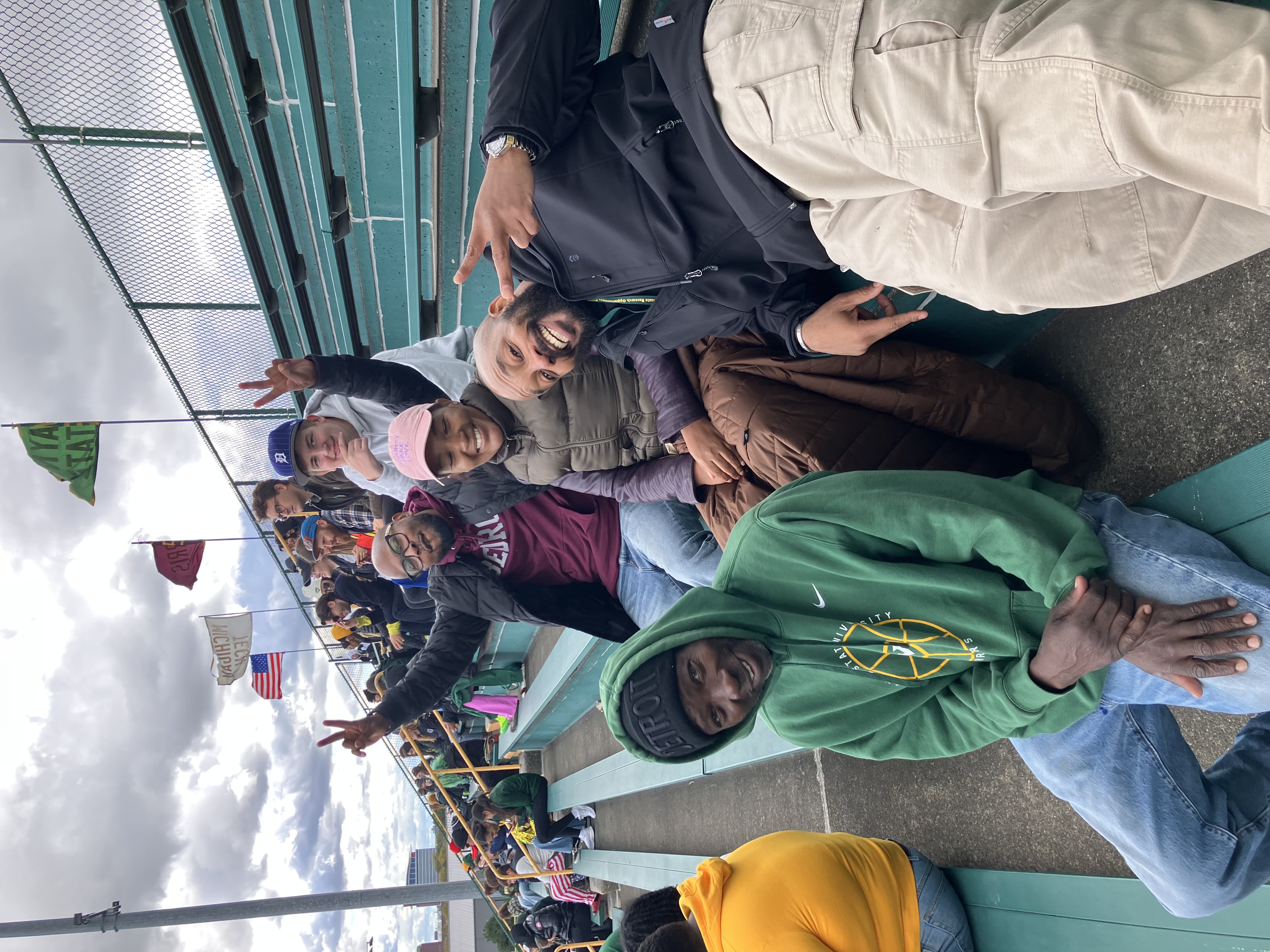
Wayne State Homecoming game
Although it was Topps who brought Roden to Wayne State, he may have found his own path there, given his connection to the mission and values of the university.
"I came to Wayne State because they showed themselves to be about diversity, equity and inclusion, and leading the way as it pertained to helping guys who are justice-impacted," said Roden. "For an R1 university to do that, I really wanted to be a part of it."
With a little over a year to go before graduation, Roden aims to continue his education at Wayne State, and continue his involvement with the Educational Transition Coordination Program and Transition and Connections Learning Community, mentoring justice-impacted individuals to help them find their path after release.
"I'm leaning towards law school, that's the goal to complete this degree and get my graduate degree," said Roden. "If that's law school then it's law school, and if it's an M.B.A., it's an M.B.A."
Whatever his next steps may be, Roden's respect for his own time and energy will surely make him successful at any endeavor he undertakes.
"My work ethic is second to none," said Roden. "I'll put everything I got on the table, and you'll know you're getting everything from me."
-Patrick Bernas, Information Officer III
The Wayne State University Mike Ilitch School of Business prepares students for challenging and rewarding careers, advances the boundaries of scholarly and practitioner knowledge, and enhances the economic vitality of the city of Detroit, the state of Michigan and beyond through its programs, research and community engagement. Established in 1946, the business school was renamed in 2015 in recognition of a $40 million gift from Mike and Marian Ilitch. Thanks to this lead investment, the school moved to a new state-of-the-art building in the heart of the District Detroit in 2018, and academic programming and collaboration with city businesses are expanding. For more information, visit ilitchbusiness.wayne.edu.